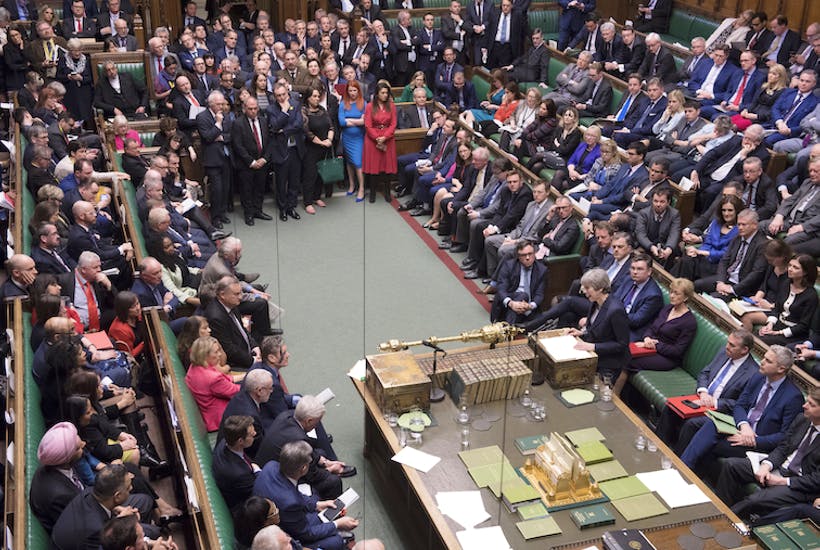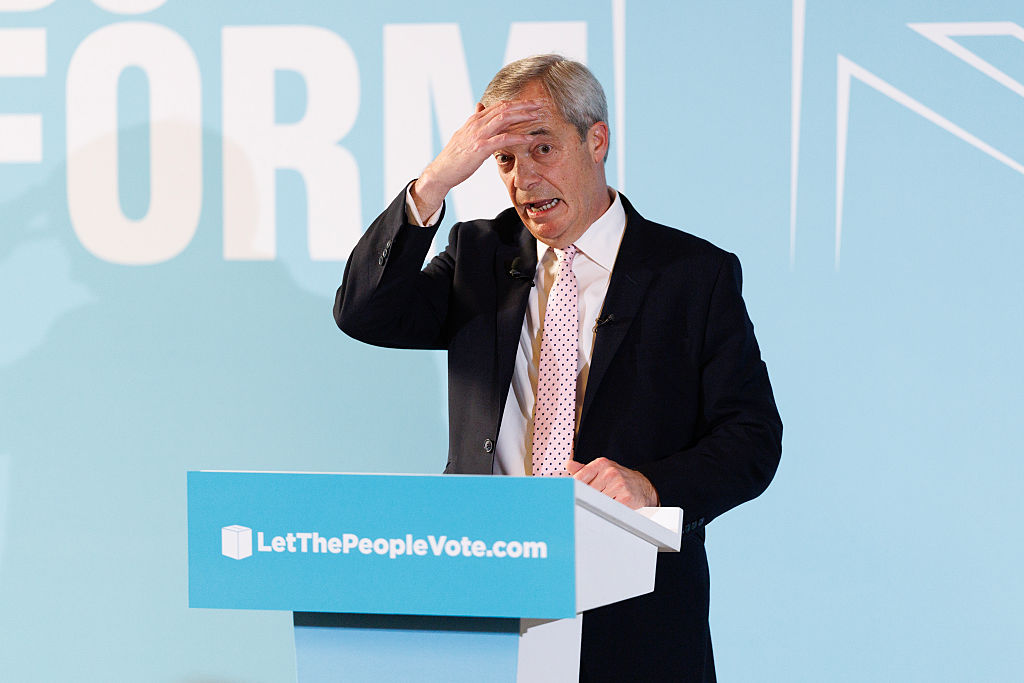With just a few minutes to go before the division on the British government’s motion on no deal, the phones of Tory MPs started buzzing. It was a message from the whips, telling them that the free vote they’d been promised since last night was now subject to a three-line whip: the strongest possible instruction on how to vote. But there was no further explanation. A message from Chris Pincher, deputy chief whip, read:
‘We are voting no to the amended motion. This is a 3 line whip.’
It was sent at 7:31p.m. Some Conservatives didn’t get this message until they were walking through the lobbies, still believing that, as Theresa May had promised last night, they could make their own decision on how to vote. They found themselves being accosted by the whips, who desperately tried to persuade them to turn around and walk through the correct lobby.
Chief whip Julian Smith blocked the path of some ministers, and attempted to redirect them. He had also managed to speak to some of the Cabinet ministers who then rebelled to clarify that the plans had changed to a three-line whip against the motion. Pincher was spotted deep in conversation with Steve Brine, a junior health minister, who then changed his direction and voted with the government and against the motion. Other bouts of arm-twisting were less successful: the government lost the vote on its own motion 321 votes to 278.
Why the panic? The Spelman amendment, which passed by just four votes, has no real legal force, though of course its supporters will argue that it has the moral force as the voice of the Commons to force the government to take the necessary legislative steps. Many MPs reported total confusion as they walked into the lobbies because no one had really considered what to do if the Spelman amendment passed. One MP said: ‘It was agony.’ Another described the atmosphere as ‘poisonous’.
This is partly because Caroline Spelman herself didn’t move the vote, and it was instead pressed by Yvette Cooper, who argued that the ministerial assurances offered were insufficient. So the whips had just minutes between this surprise, close result and the main motion to work out what they should do. It seems that the decision was taken in a discussion between May, David Lidington, the Prime Minister’s PPS Andrew Bowie and Julian Smith in her office in the minutes after the Spelman result. But the whips then appear to have found themselves at odds with May’s own chief of staff Gavin Barwell, who is alleged to have told some ministers that if they abstained, they wouldn’t face the sack.
Now MPs are bombarding their whips with their own messages, demanding that the ministers who broke the three-line instruction and abstained be sacked. They are arguing that if those ministers, who include Cabinet members David Gauke, Amber Rudd and David Mundell, are not sacked, then the government will have no way to persuade any colleagues to come into line for future votes. Not that the whips have had much leverage on this front for a while, anyway.
This article was originally published on The Spectator’s UK website. Now listen to Katy Balls and James Forsyth explain May’s second defeat of the week:

























